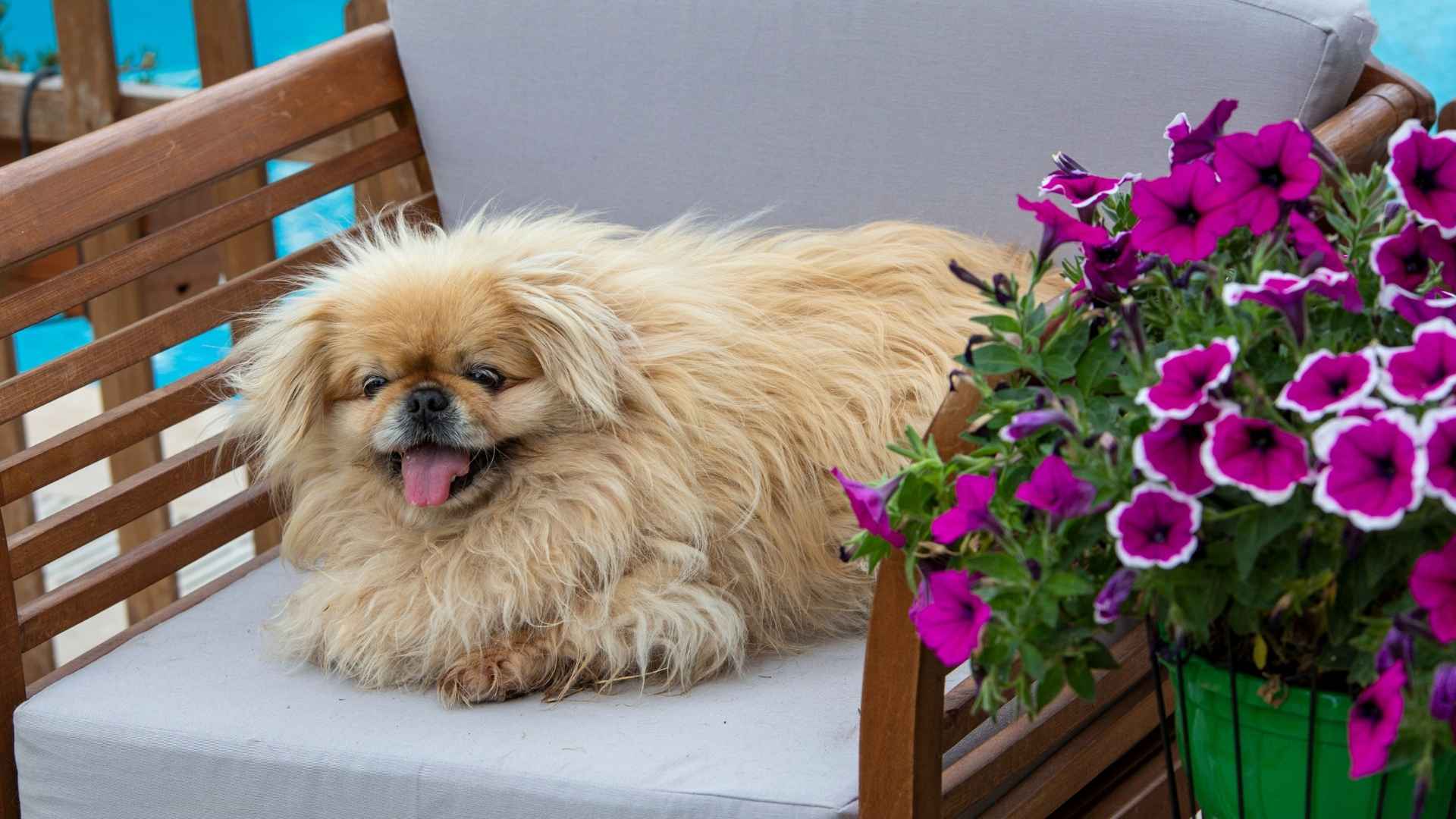Not all dogs are bundles of boundless energy; some breeds are content to take life at a slower, steadier pace. Calm, slow-reacting dog breeds are known for their gentle demeanor, measured responses to stimuli, and an easygoing attitude that makes them excellent companions for relaxed households. These dogs rarely bark without reason and prefer lounging to leaping, offering comfort and quiet loyalty rather than constant action.
Calm breeds are naturally predisposed to respond thoughtfully rather than reactively to their surroundings. Whether it’s a sudden noise, a curious child, or a new environment, these dogs tend to remain composed and emotionally balanced. Still, every dog is an individual; early socialization and consistent, positive reinforcement are essential to shaping their most serene selves.
If you’re searching for a mellow four-legged friend who can keep pace with a quieter lifestyle, this list of calm dog breeds is a perfect place to start. They may not be quick to react, but they’re quick to steal your heart.
Slow-Reacting Calm Dog Breeds
1. Irish Wolfhound
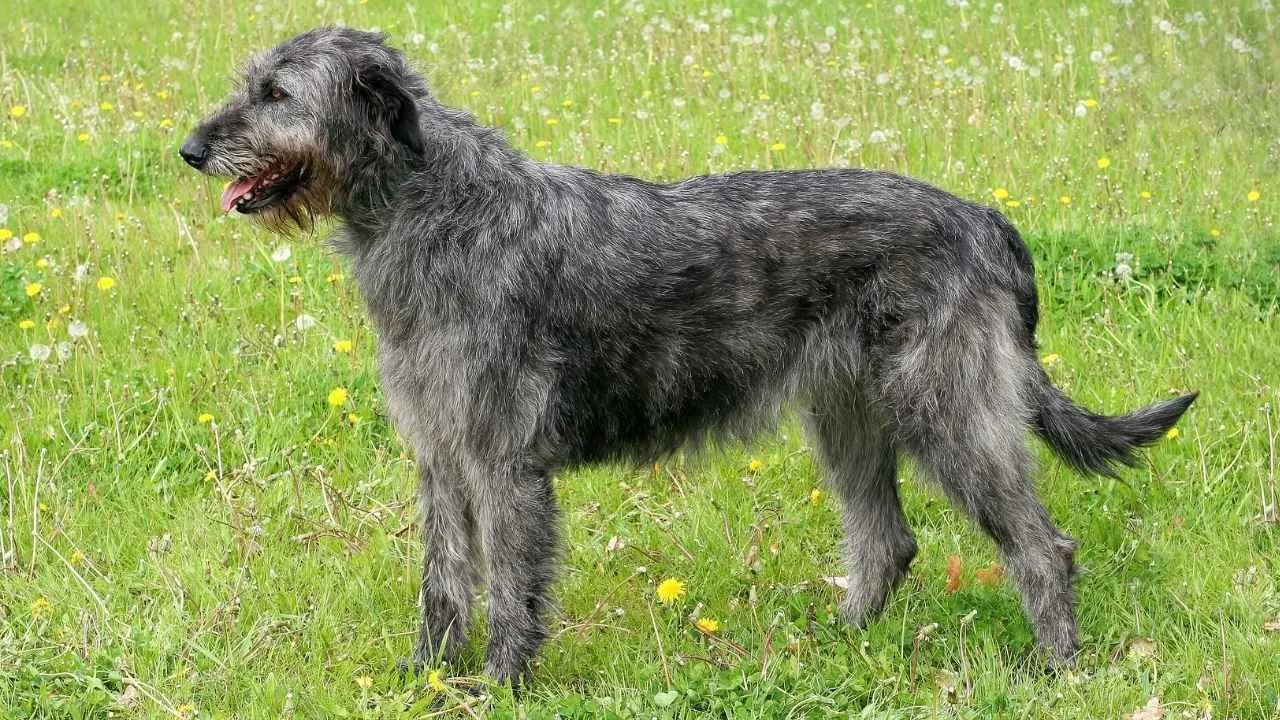
With their towering build and placid nature, Irish Wolfhounds are a picture of calm dignity. These gentle giants may reach up to 35 inches in height and weigh as much as 130 pounds, but they carry themselves with grace and quiet confidence.
Despite their size, they are remarkably mellow, making them ideal companions for low-stimulation environments. However, due to their sheer physicality, they’re generally better suited for homes with adults or older children.
Their calm demeanor and slow-reacting nature align perfectly with the temperament traits sought in therapy and companion dogs. Irish Wolfhounds are attentive without being reactive and thrive when provided an emotional connection rather than intense activity.
Temperament
This calm dog breed is deeply affectionate, patient, and emotionally intuitive. WebMD reports that Irish Wolfhounds are known for their gentle nature, calm demeanor, and strong loyalty.
They respond well to gentle training and are known to be exceptionally sensitive to human moods. Early socialization helps them adapt comfortably to various settings, especially given their large size.
Fun Fact: Irish Wolfhounds once hunted wolves across Ireland and are celebrated in the legendary tale of “Gelert, the Faithful Hound.”
2. Newfoundland
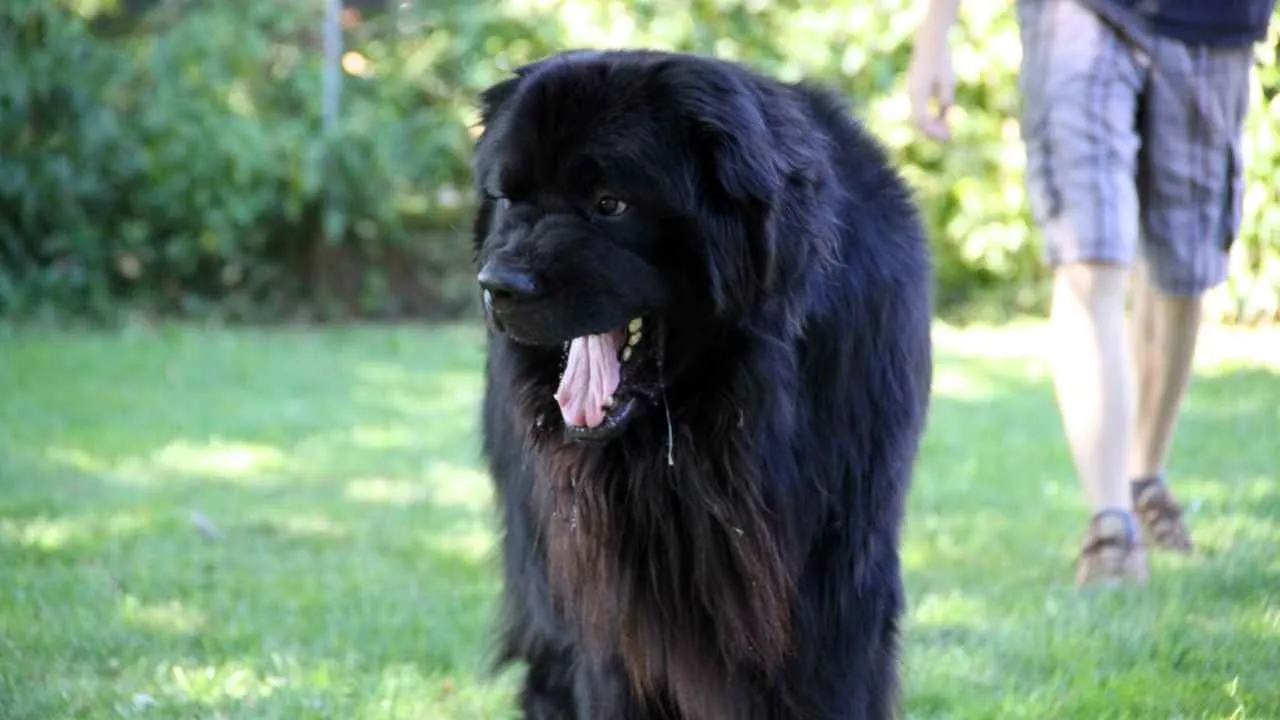
These gentle giants are often dubbed “nanny dogs” for their deep devotion to children and serene disposition. Despite their size, typically weighing over 100 pounds, they rarely show aggression or hyperactivity. Instead, they display patience and steady emotional control, making them ideal companions for families, especially in quieter households.
Their friendly, social nature makes them a joy to train, especially when introduced early to new people and environments. Purina notes that Newfoundland owners should be prepared for plenty of drool, enjoy water activities (and accept long drying times), and have the patience to handle a dog that stays puppy-like for nearly three years.
Newfies are not just cuddly companions; their strong build and natural swimming ability make them excellent water rescuers. However, they lean more toward protection than aggression, often watching over their loved ones with calm vigilance rather than assertive barking. Their ability to remain composed, even in unexpected situations, places them among the most reliably calm breeds.
Temperament
These therapy dogs are affectionate, good-natured, and sociable. They are intelligent and curious without being timid or reactive. Their easygoing personality, paired with a need for daily human connection, makes them well-adjusted pets when properly socialized. Early training and interaction are essential to ensure they grow into the loving, mellow companions they’re known to be.
Fun Fact: Newfoundlands are famous for their water rescue skills, often pulling people to safety.
3. Pekingese
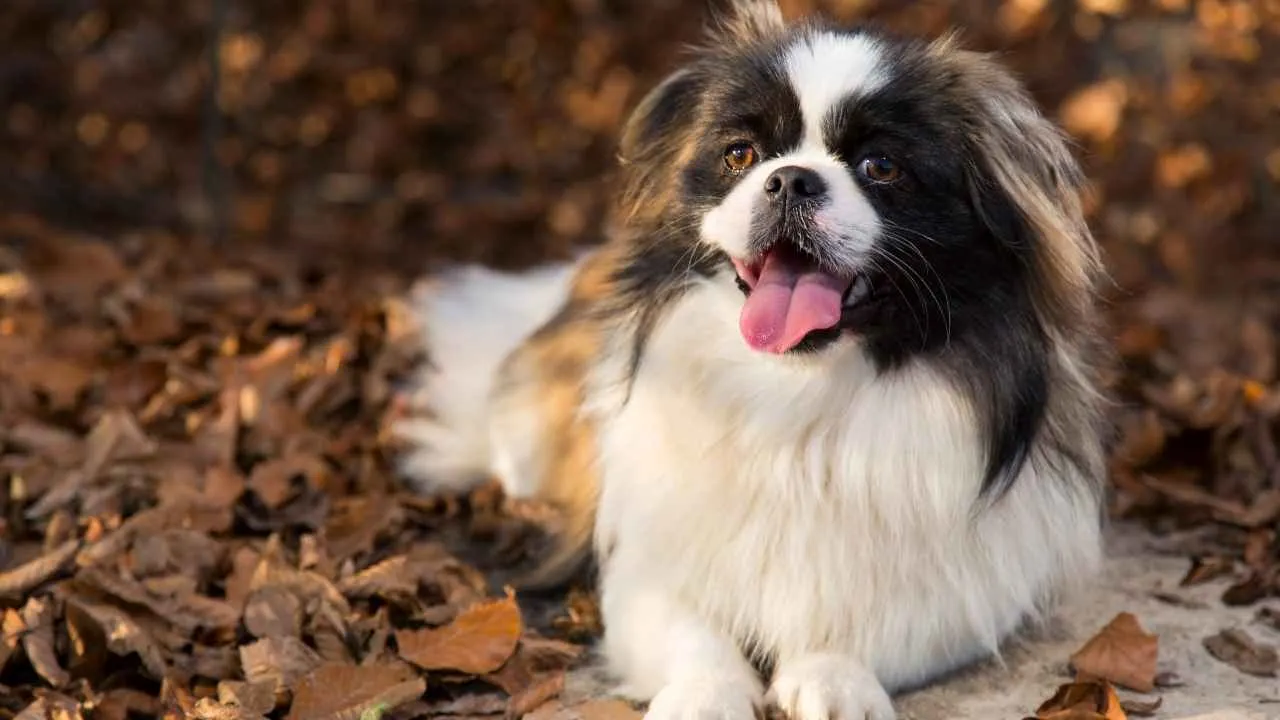
Bred to lounge in royal palaces, these toy-sized dogs are far from athletic but excel as affectionate lap dogs. According to the AKC, Pekingese are known for their warm and sociable nature. They are intelligent dogs that form deep bonds with their owners. Their small stature, reaching up to 14 pounds, and signature lion-like mane give them a majestic appearance.
With their unique rolling gait and preference for quiet surroundings, they are naturally suited for relaxed households. Due to their flat faces and compact build, overexertion isn’t ideal, making leisurely walks and cozy naps their preferred activities.
Temperament
These little dogs are gentle, composed, and deeply loyal to their chosen person. While their serene demeanor makes them excellent for quiet families, they are also naturally independent and a bit opinionated.
They tend to remain unfazed by sudden sounds or new stimuli, but early socialization is still key. Calm yet confident, these pups are not easily rattled and enjoy peaceful environments where they can simply observe or snuggle.
Fun Fact: The Pekingese was originally bred for Chinese royalty and still carries itself with an air of noble self-assurance.
4. Saint Bernard
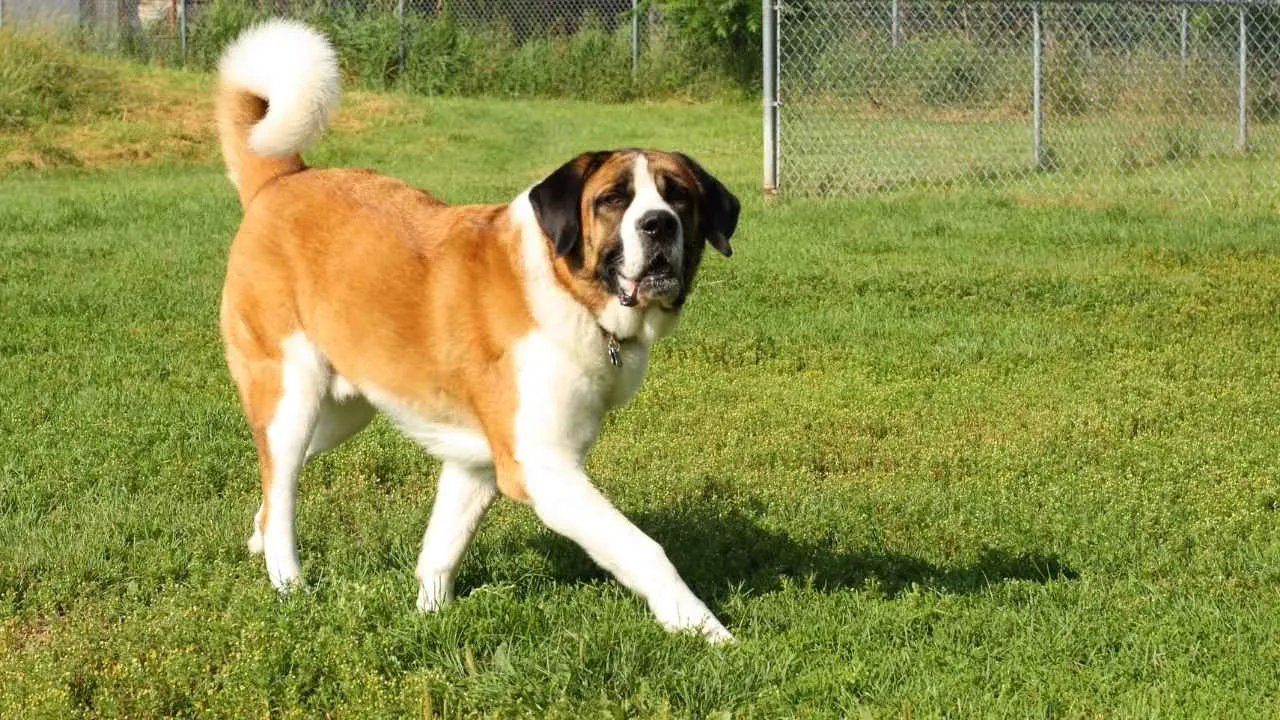
Saint Bernard is a strong, muscular dog with a large head and floppy ears, as per Britannica. Its coat, which can be either short and dense or medium-long, typically features red-brown and white or brindle and white coloring.
Their laid-back demeanor and slow, deliberate movements reflect a natural calmness that suits peaceful households. Despite their giant size, Saint Bernards are affectionate, loyal companions who thrive on meaningful interaction, especially when they have a purpose, like pulling a cart or carrying a pack during a gentle hike.
Temperament
Saint Bernards are best known for their gentle, patient, and nurturing temperament. These dogs are famously good with children, often dubbed “nanny dogs” for their watchful, loving nature. Their calm disposition is the result of good breeding, socialization, and a lifestyle that meets their emotional and physical needs.
While generally very mellow, they are also capable guardians when they sense danger to their family. Friendly and peaceful, they bond deeply with their humans and prefer cooler climates.
Fun Fact: Saint Bernards were originally bred for mountain rescue and are known to remain calm even in high-stress avalanche situations.
5. Tibetan Spaniel
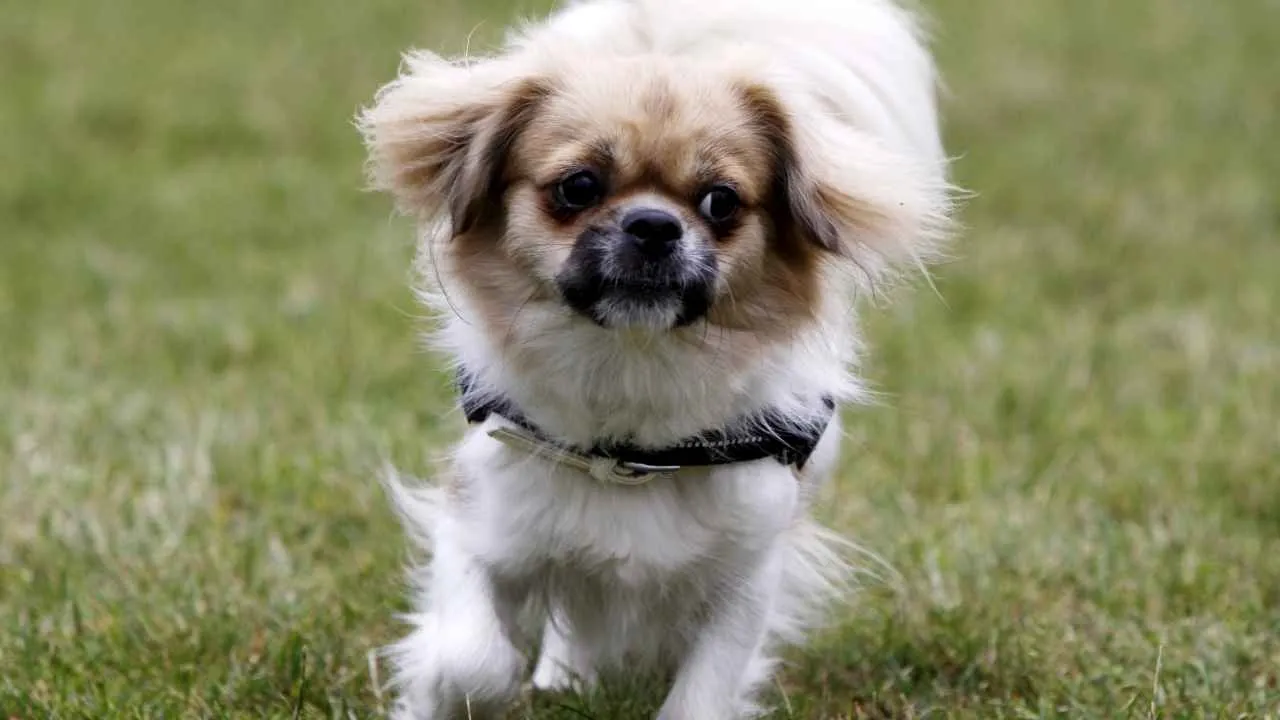
Originally bred to sit alongside Buddhist monks in remote Himalayan monasteries, this breed developed a serene disposition and a deeply loyal bond with its humans. Unlike more high-strung small breeds, Tibbies balance playful spurts with long stretches of quiet companionship.
They often enjoy lounging in elevated spots, like a sofa backrest, watching over their home with quiet attentiveness.
Temperament
Tibetan Spaniels are alert yet composed, with a strong sense of loyalty to their families. While they may appear reserved around strangers, they’re affectionate and deeply attached to their household.
Their calm demeanor makes them ideal for peaceful environments, though their alertness can sometimes make them vocal. They’re not fans of being left alone, so early training and gradual independence-building are helpful in preventing separation anxiety.
Fun Fact: Tibetan Spaniels are one of the few dog breeds that naturally get along well with cats, thanks to their cat-like tendencies and preference for elevated observation points.
6. Whippet
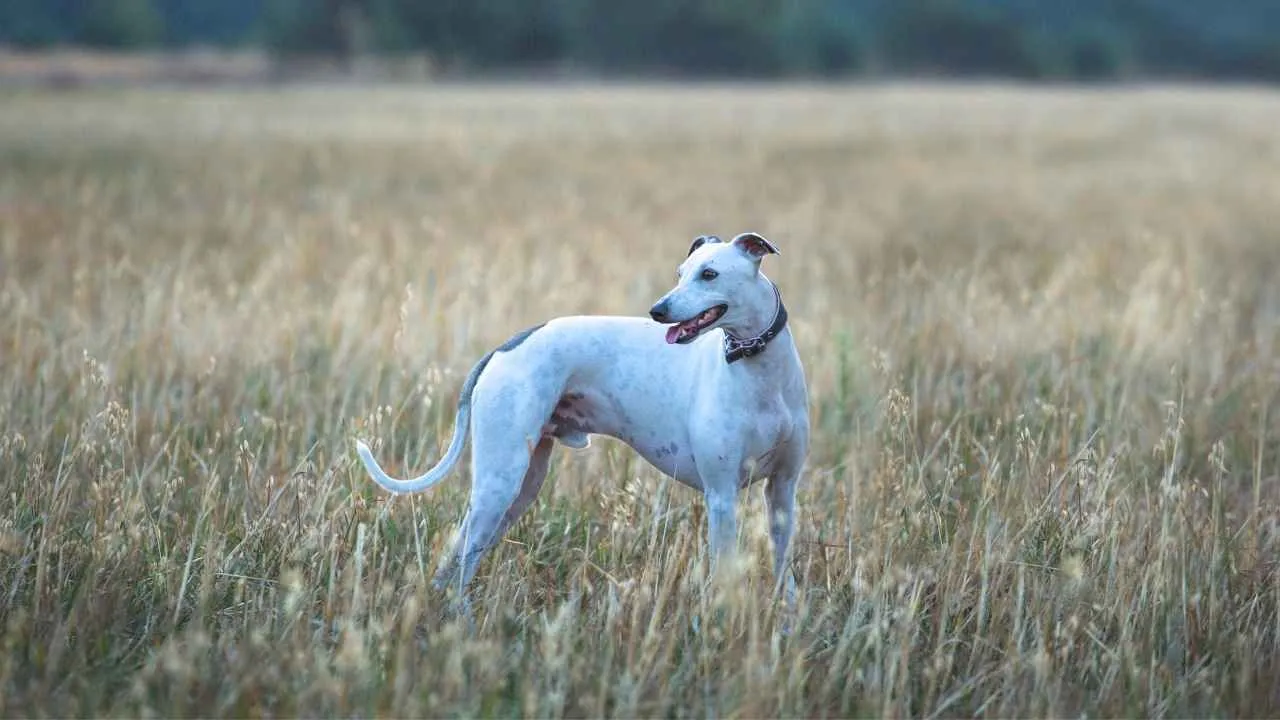
Though built for speed, the Whippet is surprisingly laid-back at heart. Known for their lightning-fast sprints, these dogs are just as content to spend the rest of the day napping in a cozy corner.
Once they’ve burned off their short bursts of energy, Whippets transition effortlessly into quiet, couch-loving companions. Their preference for serene environments makes them ideal for calm households, especially those without the unpredictable energy of small children.
Temperament
Whippets offer a lovely balance of friendliness and tranquility. Naturally gentle and easygoing, they adapt well to calm social settings and typically get along with both people and pets when socialized early.
However, their sensitive nature makes them less suited to noisy or chaotic environments. They aren’t prone to barking, but as sighthounds, they do have a strong prey drive, so any small animals in the home should be introduced thoughtfully.
Fun Fact: Two Whippet siblings, “Bourbon” and “Whiskey,” made history by each winning Best in Show at the AKC National Championship in 2018 and 2020.
7. Leonberger
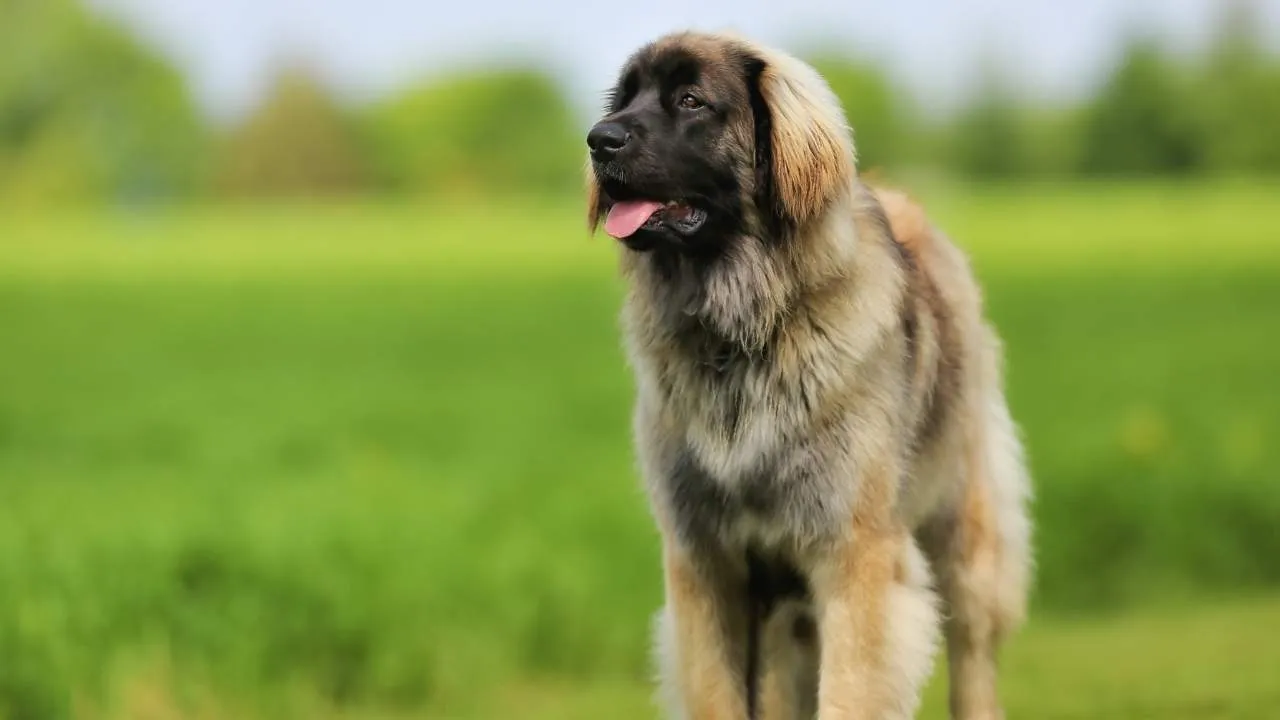
Originally developed as a working dog for guarding and rescue tasks, this breed brings a composed strength and relaxed disposition that makes it especially suited for peaceful households. Despite their substantial size, females weighing around 140 pounds and males reaching up to 170 pounds, Leonbergers are remarkably gentle and affectionate.
They require consistent grooming and ample daily exercise as adults, but during puppyhood, care must be taken to avoid stress on their growing joints. Training a Leonberger calls for patience and a gentle, reward-based approach.
These dogs aren’t in a rush to respond but will engage thoughtfully and loyally when treated with kindness and consistency. Their giant frame houses an even larger sense of loyalty and warmth.
Temperament
Leonbergers are known for being placid, even-tempered, and highly devoted. They are confident yet easygoing, forming strong bonds with family members and getting along well with other pets and children. Their mellow demeanor often conceals a playful, patient spirit that thrives in calm environments.
Fun Fact: The Leonberger is considered larger than even the Newfoundland and can weigh up to 170 pounds.
8. Basset Hound

The Basset Hound is a true icon of tranquility, perfectly embodying the qualities of a slow-reacting, calm breed. With a laid-back demeanor and moderate exercise needs, this breed prefers leisurely strolls over high-energy games.
While they may not be champions in agility, their extraordinary sense of smell and curiosity often lead them on scent-driven adventures, albeit at their own relaxed pace. They adapt well to new environments and thrive in peaceful households where their unhurried nature is welcomed.
Temperament
Patient, steady, and notably gentle, the Basset Hound’s temperament is ideal for families seeking a calm companion. Originally bred to hunt in packs, they typically get along well with other pets and enjoy human company, especially children.
Though they possess intelligence, their stubborn streak can make training a slow process. Still, their loyalty and sweet disposition outweigh their occasional hard-headed moments. A home that embraces their easygoing yet occasionally obstinate personality will find a truly lovable companion.
Fun Fact: The Basset Hound has a sense of smell second only to the Bloodhound, making it one of the best scent trackers in the canine world.
9. Cavalier King Charles Spaniel

When it comes to calm behavior, slow-reacting dogs, the Cavalier King Charles Spaniel is the perfect match. Bred as a companion dog for British aristocracy, this breed still embodies the grace and gentle temperament that once made it a royal favorite.
With their affectionate nature and soft, expressive eyes, Cavaliers thrive in cozy family settings. They adapt seamlessly to both active and relaxed lifestyles, equally content lounging during Zoom meetings or enjoying playful moments in the backyard; therefore, they can suit active pet parents as well.
Temperament
Cavalier King Charles Spaniels are known for their tender, people-oriented personalities. They’re naturally quiet, warm-hearted, and love to stick close to their humans. Whether living in a bustling city apartment or a quiet rural home, they adjust effortlessly as long as they’re given companionship and gentle attention.
Their laid-back attitude and love of cuddles make them excellent choices for families with children or other dogs and pets. Just don’t leave them alone for too long; they crave closeness and may struggle with separation.
Fun Fact: These lap-loving dogs were named after King Charles II and are nicknamed “the comfort spaniel” for their deep love of snuggling.
Conclusion
Finding a dog that matches your walking pace can make daily strolls more enjoyable for both of you. Whether you prefer a leisurely pace or a brisk walk, there’s a breed that naturally aligns with your rhythm. Some dogs, like retired racing dogs, such as Greyhounds, surprisingly enjoy a calm walk followed by long naps, making them ideal for those who like short bursts of activity followed by relaxation.
On the other hand, slower, more easygoing breeds might be perfect for those seeking a companion that’s more of a couch potato. These dogs enjoy short walks and long cuddles, especially if they have a fenced yard to explore at their own pace. Matching your activity level with your dog’s temperament not only helps prevent health issues but also ensures your pet lives their best life. From energetic partners to mellow companions, the right walking buddy is out there, ready to step in sync with you.


